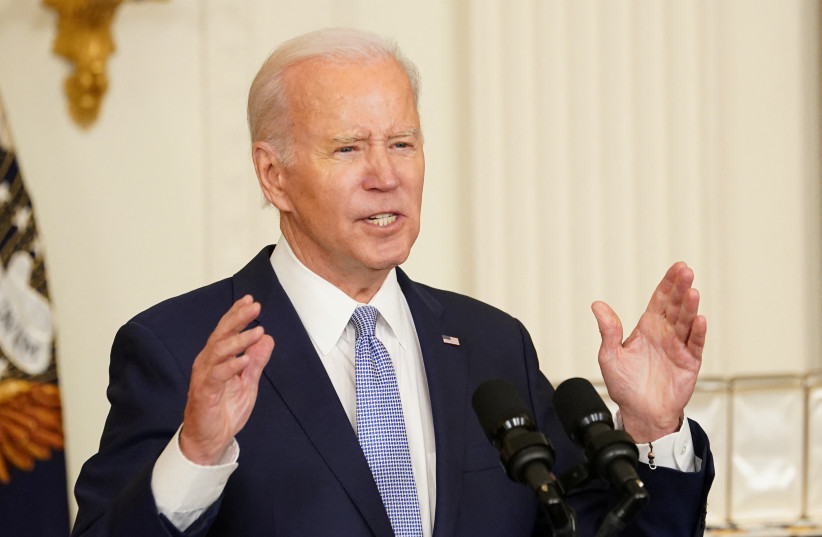The American public remains deeply divided over the extent of the United States' role in resolving the Israel-Hamas war in Gaza, and especially over Prime Minister Benjamin Netanyahu's performance as leader, according to the latest Gallup poll conducted last month.
The public image of Israel's longest-serving prime minister has undergone a significant downturn in the US.
Netanyahu, facing charges of bribery, fraud, and breach of trust, has led a conservative Israeli government, drawing criticism for security lapses that allowed the October 7 attack. His approval rating among Israelis stands at 40%, with a disapproval rate of 52%.
Netanyahu's image takes a turn for the worse
Gallup’s tracking of Americans’ views on Netanyahu since 1997 indicates a recent negative shift, with a 47% unfavorable rating against a 33% favorable rating. Notably, Republicans maintain a more positive view of Netanyahu, with 55% favorability, in contrast to 14% among Democrats and 30% among independents.
However, Netanyahu’s favorability has declined across all three groups since 2019.

No consensus on US involvement
The survey, carried out between December 1-20, 2023, revealed a lack of consensus, with approximately four in 10 respondents indicating that the US involvement is either "about the right amount" (41%) or "not enough" (39%). A smaller faction, around 19%, believes the US is doing "too much."
Notably, 40% of both Republicans and Democrats believe that the US is not doing enough to address the conflict. However, Democrats (48%) are more inclined than Republicans (33%) to consider the current US involvement as adequate. Conversely, Republicans (26%) are more likely than Democrats (11%) to perceive US involvement as excessive. Independents' perspectives align closely with the national averages.
This survey, conducted in the wake of a deadly attack by Hamas on Israel on October 7, coincided with the expiration of a weeklong truce between the two parties. Recent statements from Israeli officials suggest the likelihood of continued conflict for several months.
A prior poll in November revealed a split among Americans in their approval of Israel's military action against Hamas, with Republicans showing double the approval rate compared to Democrats. US President Joe Biden, acknowledging Israel as a longtime ally of the US, has supported Israel's right to self-defense against Hamas. However, this stance has drawn criticism from some Democrats, concerned about civilian casualties and the humanitarian crisis in Gaza.
Enough support?
Gallup's December poll also gauged perceptions regarding the level of US support for Israel and the Palestinians. Approximately 38% of adults believe Israel receives appropriate support, while 36% consider it excessive and 24% insufficient. Opinions on US support for Palestinians are evenly split, with around one-third each believing it's too much, just right, or too little.
Partisan differences were apparent, particularly in the perception of US support for Israel and the Palestinians. While 40% of Democrats and independents think the US overly supports Israel, only 26% of Republicans share this view. Conversely, 37% of Republicans feel that the US doesn't support Israel enough, compared to 15% of Democrats.
Regarding support for Palestinians, a majority of Republicans (52%) believe the US provides excessive aid, while nearly half of Democrats (49%) think support for Palestinians is inadequate.
Comparing current sentiments with historical data, the percentage of Americans feeling the US is doing too little for both Israel and the Palestinians is higher than figures recorded in 2006. Moreover, the latest data demonstrate a notable increase in the proportion (24%) of respondents who feel the US is not sufficiently supporting Israel, marking the highest figure recorded.
